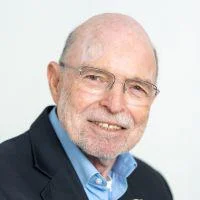The European Institute's first decade

As the 1980s turned into the 1990s, the EU was developing what would become the 1992 Maastricht Treaty (which, among other things, introduced European citizenship) and giving early consideration to whether, when and on what basis the reforming former-Communist countries of Central and Eastern Europe might become Member States.
Against that backdrop, the School established the European Institute (EI) as a focus for colleagues across departments who worked on different aspects of Europe.
‘The Institute’s objective is to develop and co-ordinate teaching and research about Europe (broadly defined), and to co-ordinate and develop links with European institutions and responses to EC programme’ (LSE Calendar, 1992-93, p. 49).
The initial set up was small. The founding Director was Dr Howard Machin of the Government Department, supported by about 3 colleagues in the EI and a few others elsewhere in the School; and what is now a buzzing professional services staff of more than a dozen in the EI office in the early years was a single person. Communications were by phone or hard copy through internal mail in re-usable envelopes (the first School-wide email system started in October 1993).
The first decade of the EI’s life was one of entrepreneurship and explosive growth. Searching ‘European Institute’ in the LSE Calendarrevealed no mention in 1991-92, rising in successive years to 3, 11, 24, 29, 35 and 41, and to 53 in 1999-2000.
At its inception, the EI took over running the pre-existing MSc in European Studies and the School’s contribution to the BA in European studies taught jointly with other colleges of London University.
By the mid-1990s, things were very different. In 1994-95 the EI was listed as a separate department for the first time, teaching three MSc degrees: the MSc European Studies, MSc Political Economy of Transition in Europe (known affectionately to all as PETE), and the MSc Russian and Post-Soviet Studies. The two latter degrees both had their genesis in the post-communist reforms, PETE being an outgrowth of Nick Barr’s two years’ leave at the World Bank working on reforming welfare states in Central and Eastern Europe. The EI was also home to three interdisciplinary research projects, LSE Health, the Public Service Group and the Economic and Social Cohesion (ESOC) Laboratory, with two other groups – on Russia and on Contemporary Spanish Studies about to be added.
Over the course of the next few years, the EI started to make appointments to its academic staff and to widen and deepen its connections with the European Union. This push to engage more deeply with the EU Commission and various agencies rapidly became a strategic initiative, and ultimately one that formed the basis for LSE´s Research Department´s significant growth for related funding. These included regular missions to Brussels by the EI senior management, LSE Research Division, the fledging LSE Enterprise, and by departmental faculty which helped to build relations that were to serve the EI and LSE well.
By 1999, alongside discussion of further integration of existing EU Member States were pressures from the countries of Central and Eastern Europe to join, so the political economy MSc was split into two streams, MSc European Political Economy: Transition (formerly PETE) and a new MSc European Political Economy: Integration.
By the time the 1990s turned into the 2000s, the EI was firmly established.
- The 1999-2000 Calendar lists 17 members of EI academic staff, including many who were to become stalwarts of the EI – Sebastian Balfour, Spyros Economides, Maurice Fraser, John Gray, Abby Innes and Jennifer Jackson-Preece – shortly to be joined by Richard Bronk, Bob Hancké and Waltraud Schelkle. Alongside these internal appointments were colleagues in other departments, including Nick Barr (Economics), Damian Chalmers (Law), Simon Hix (Government), Paul Preston (International History), Anthony Smith (Sociology) and Paul Taylor (International Relations).
- The EI had a stable of degrees: alongside the two political economy degrees and the MSc European Studies and MSc Russian and Post-Soviet Studies was the MSc Nationalism and Ethnicity and MSc European Studies: EU Policy Making and a BSc in Russian Studies. There was also an M Phil/PhD programme.
- The EI was host to seven research centres, including the Cañada Blanch Centre for Contemporary Spanish Studies, the Hellenic Observatory and the Forum for European Philosophy.
- A growing series of European Institute Public Lectures were part of public engagement.
Much of the drive for this expansion came from Howard Machin’s ability to fulfil the School’s brief. From his entrepreneurial skills came the speed with which he recognised opportunities emerging from rapidly-evolving external events, and his ability to translate those opportunities into activities and/or finance of benefit to the EI.
Constraining what was sometimes opportunistic expansion was the School’s long tradition of approaching new areas taking a broad social science approach – true of the School’s initial entry into fields such as accounting and law, and areas such as social policy. The EI was firmly in that tradition, and from the first its study of Europe brought to bear analysis and insights from economics, political economy, political science, law, philosophy, international relations international history, and later also political sociology. Also noteworthy was that the EI was never only about the EU, given the prescience of the EI’s original terms of reference in specifying Europe ‘broadly defined’.
As the EI grew, so did the requirements of management – record keeping, process, communication. Thus the balance between entrepreneurship and management moved towards the latter. The School’s response was to reform the EI’s governance to bring it more into line with that of other departments, with a head who would serve a 3-year term and then hand over to a successor, or with School permission serve again.
The EI’s first such head was Paul Taylor, whose long association with the EI made him a well-known and respected figure, with the experience of having been convener of the Department of International Relations at LSE. Paul’s arrival heralded a calmer period, not only internally, but also in the EI’s productive coordination with its disciplinary relations in other departments.
This new stability enabled the EI to make a number of formal appointments, some from other departments, including Nick Barr and Damian Chalmers, and others from other universities, notably Kevin Featherstone and, a few years later, Simon Glendinning, who brought philosophy into the disciplinary mix and, later, to the EI degree programme. It also created a platform for new initiatives, including work to establish a Chair for Contemporary Turkish Studies to complement the existing Chair in Contemporary Greek Studies.
An LSE great of the past said that students mattered as much as the staff to the quality of an institution. From the early days, the EI has enjoyed cohort after cohort of bright, lively students, thoroughly engaged with their course and its relation to the outside world – with a particularly personal element for students from former-Communist countries, who leapt at the chance to study the Europe they were intent on re-joining, and in a city that till a few years earlier had been largely closed off to them. Illustrating the quality and vivacity of generations of EI students is the range of their subsequent work. Some went to EU institutions such as the Commission and European Central Bank, or to international organisations such as the World Bank, IMF and EBRD. Others went to leading corporations or set up their own. Others went into party politics or journalism, or joined campaigning NGOs, or worked with refugees. Others went to work for the government in their own country or elsewhere. And, indeed, some went on to teach in the EI.
Students were an integral part of a win-win with teachers – a defining feature of the EI from its early days being the emphasis on teaching, with high rates of student satisfaction. Similarly, there was win-win among the teaching staff, with a growing tradition of collegiality in personal terms and lively discussion across disciplinary boundaries. The EI office also became very much part of the story, not only in narrow administrative terms but as leading citizens of the EI, taking on part of the mantle of student support even as they keep the increasingly complex organisation in good order and good humour.
The eventful early years saw the translation of early eclecticism into a fully-fledged multi-disciplinary department; the growth of political economy; early appointments of colleagues who would go on to lead the EI; the broadening of the range of disciplines being brought to bear; the widening focus on multiple aspects of Europe; the quality of the students; and the tradition of collegiality among and between the component parts of the EI. These early traditions continued to be clearly visible over the two decades that followed.
I am grateful for help with earlier versions from Ludwig Campbell, Kevin Featherstone and Simon Glendinning, and particularly from Adam Austerfield and Abby Innes who were part of the early days.
The EI was never only about the EU, given the prescience of the EI’s original terms of reference in specifying Europe ‘broadly defined’.

About the author
Professor Nicholas Barr is the Professor of Public Economics at the European Institute.
His researches focus on economic theory of the welfare state, social insurance, pensions, health finance, the finance of higher education.